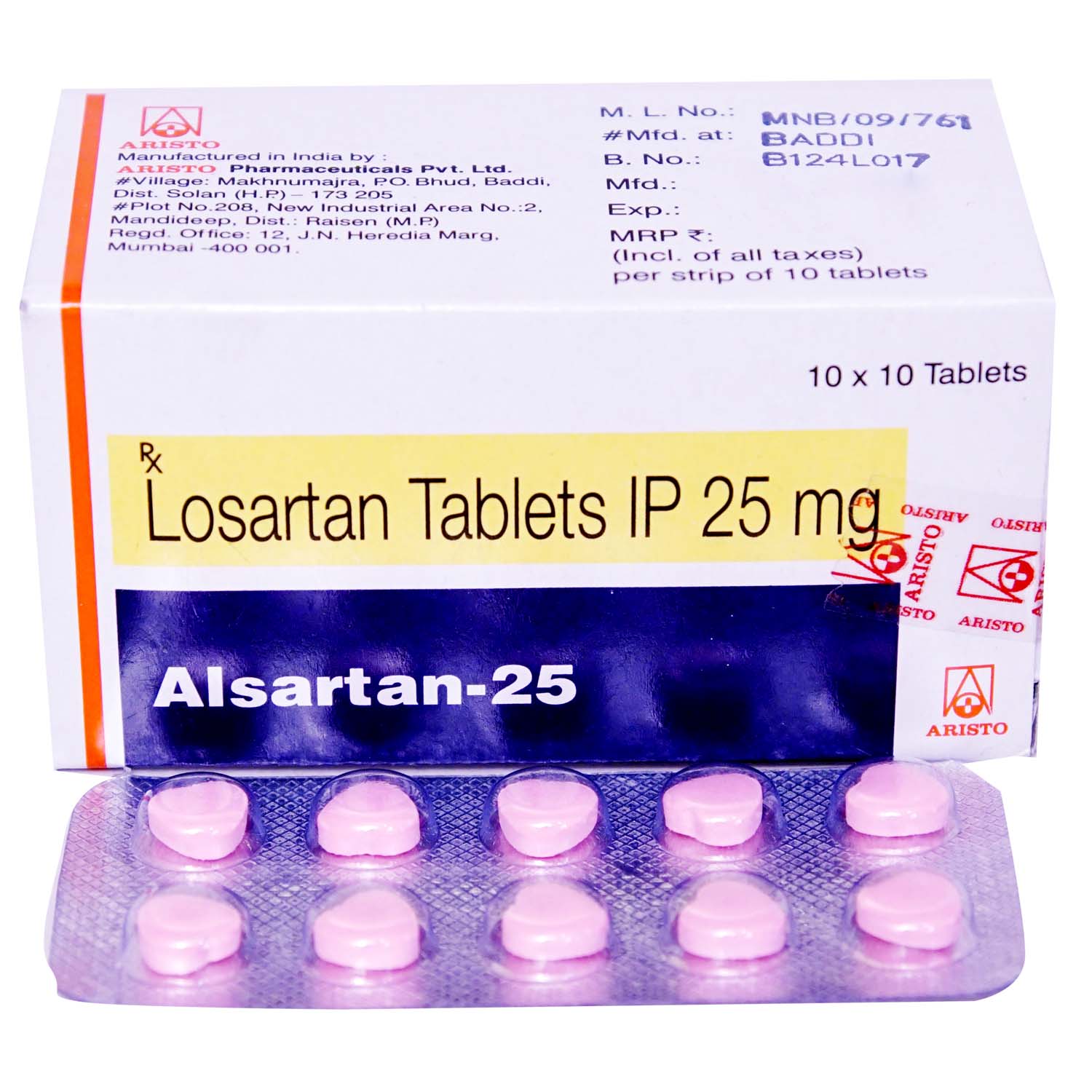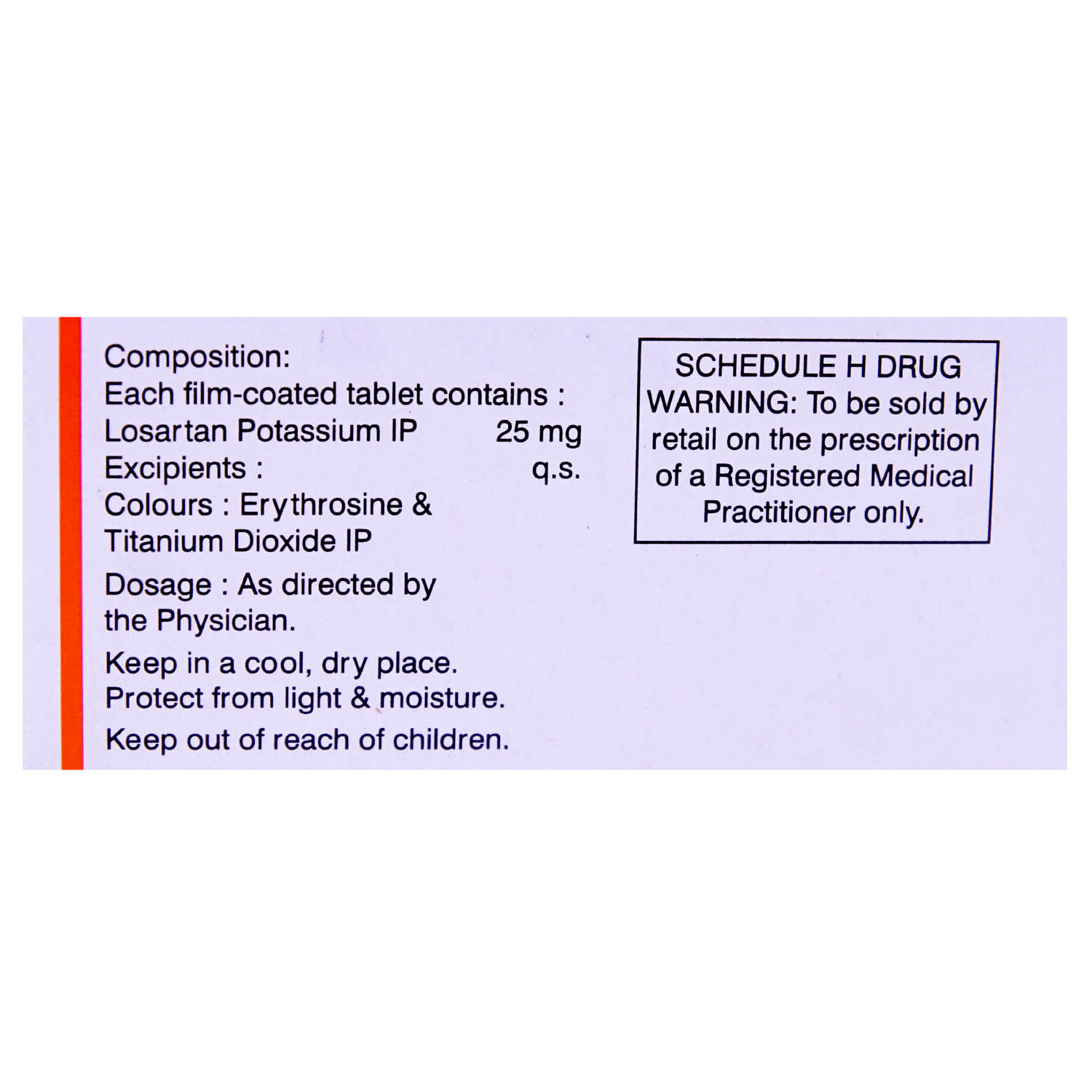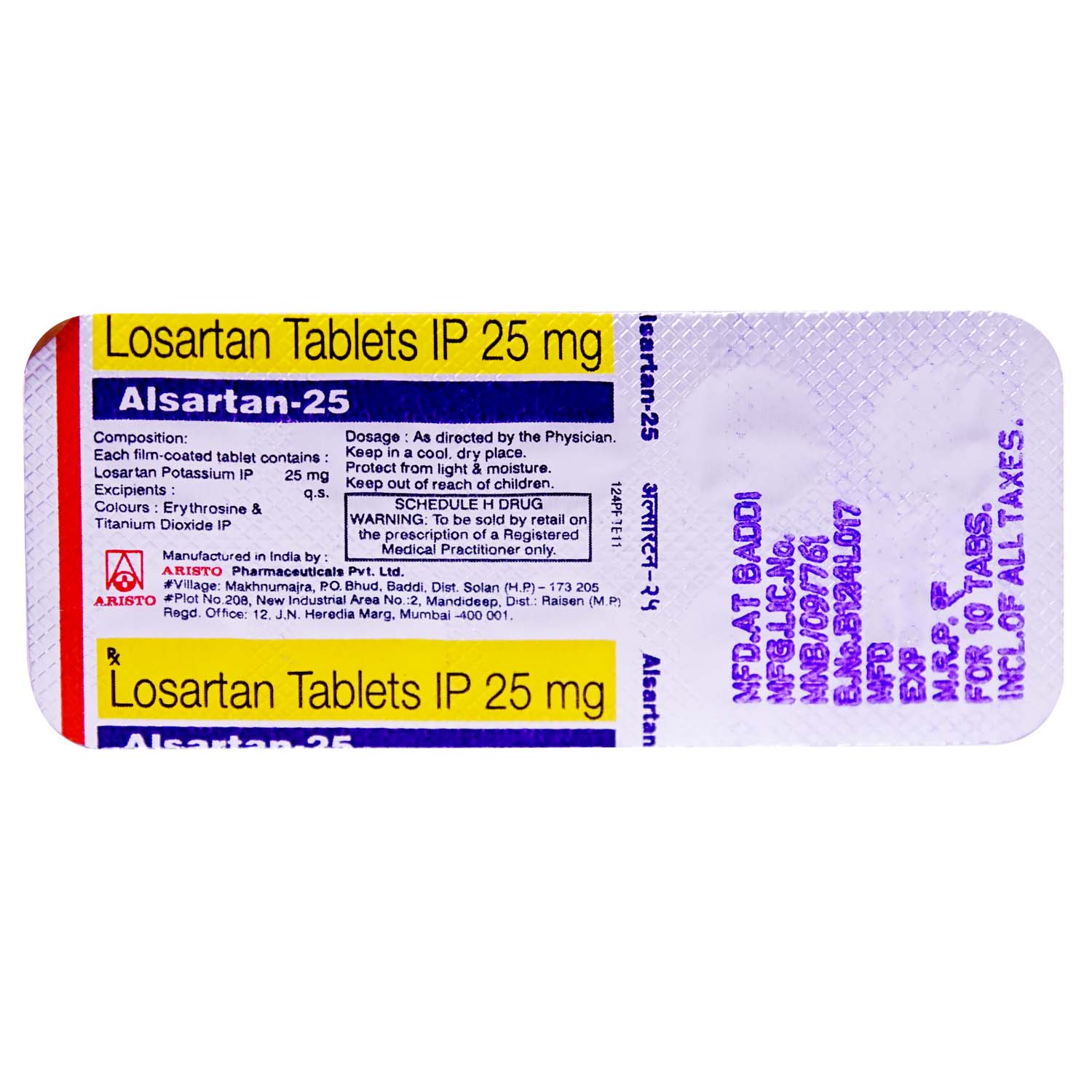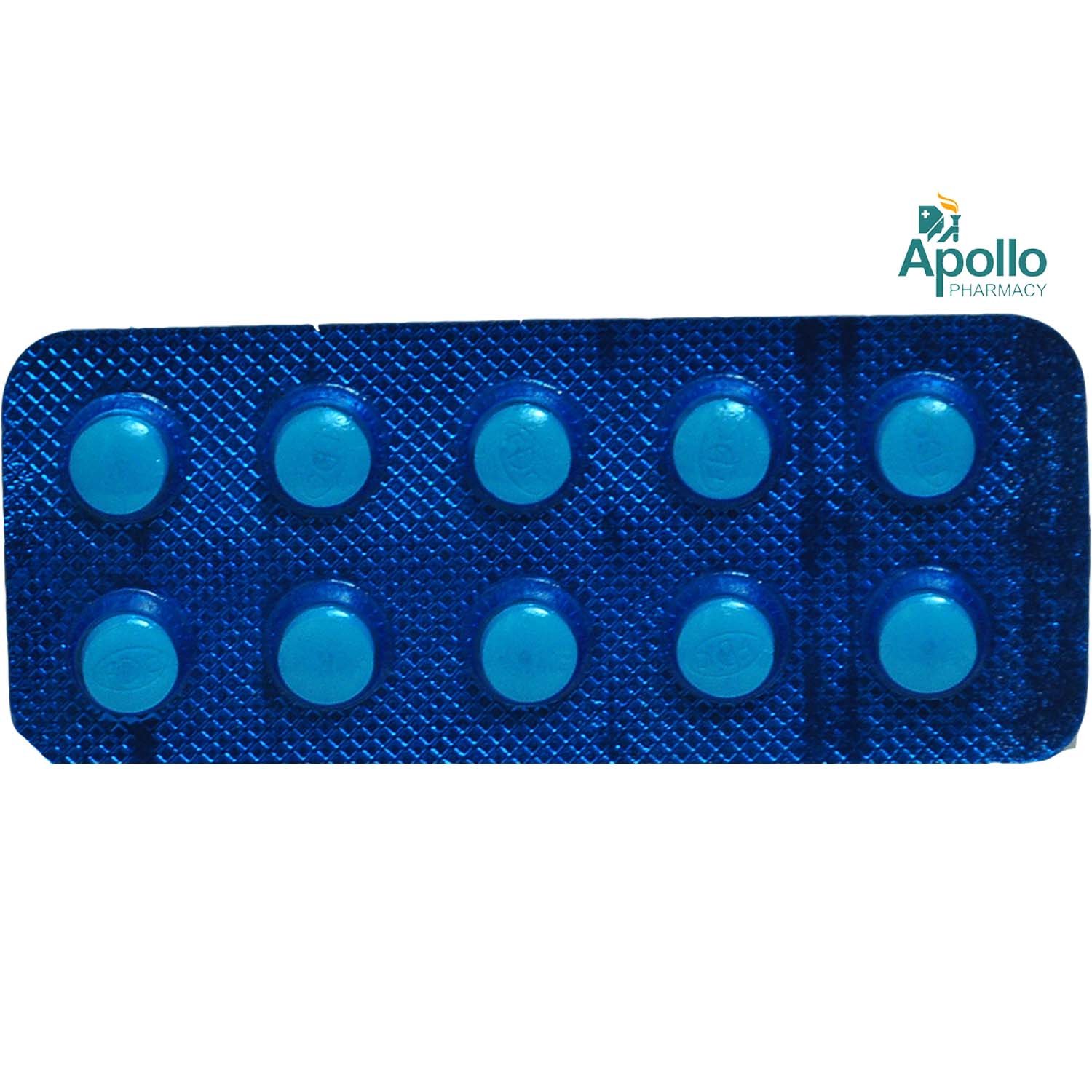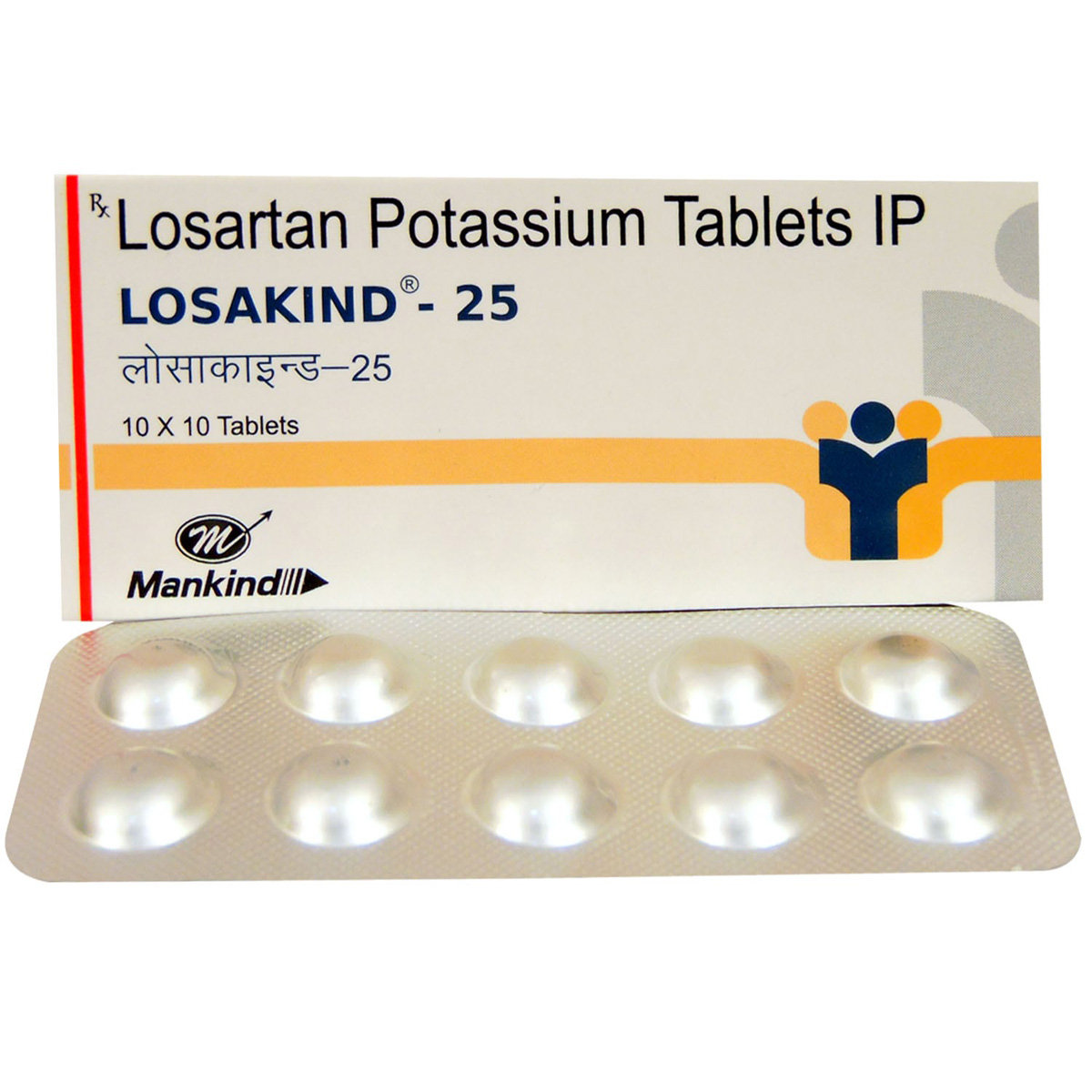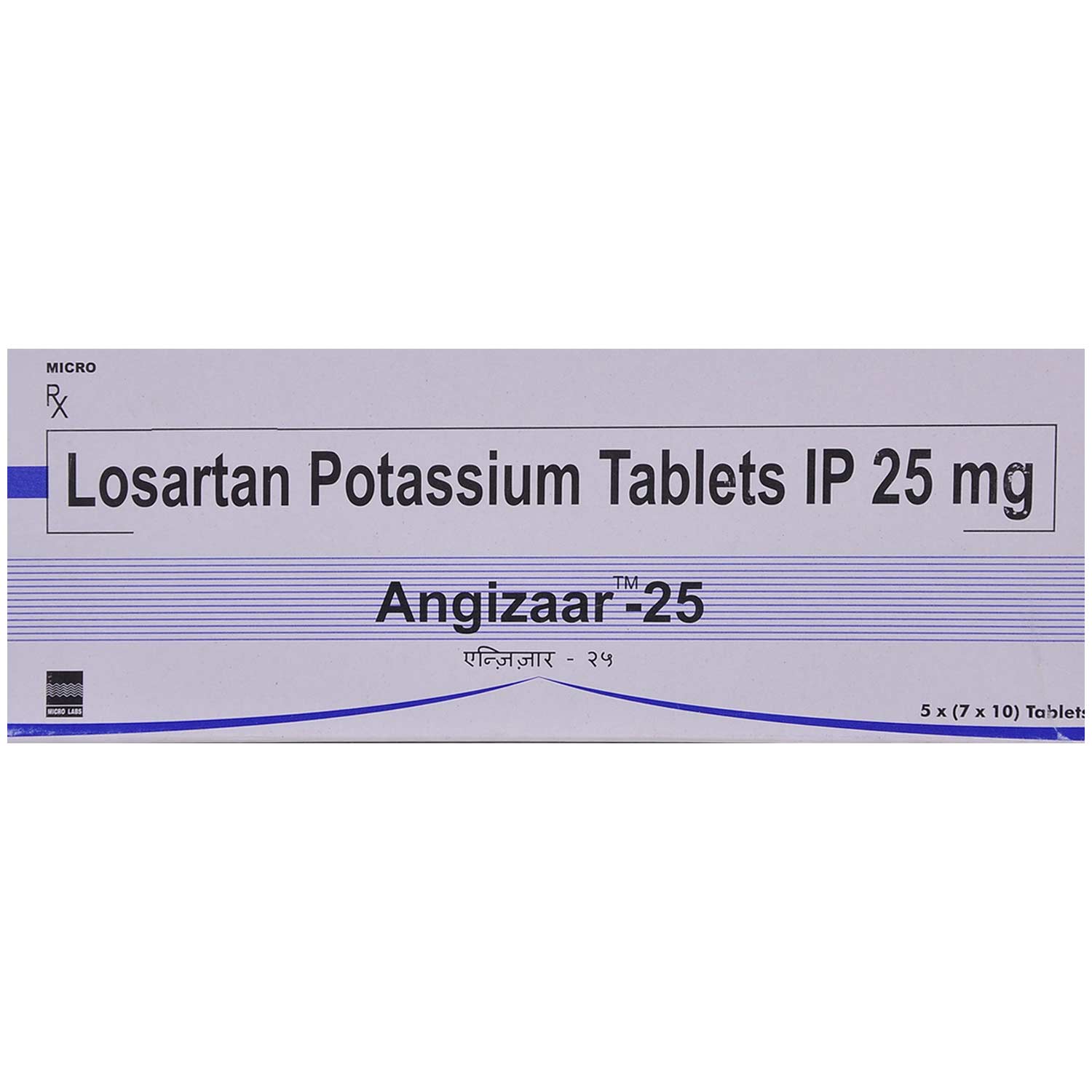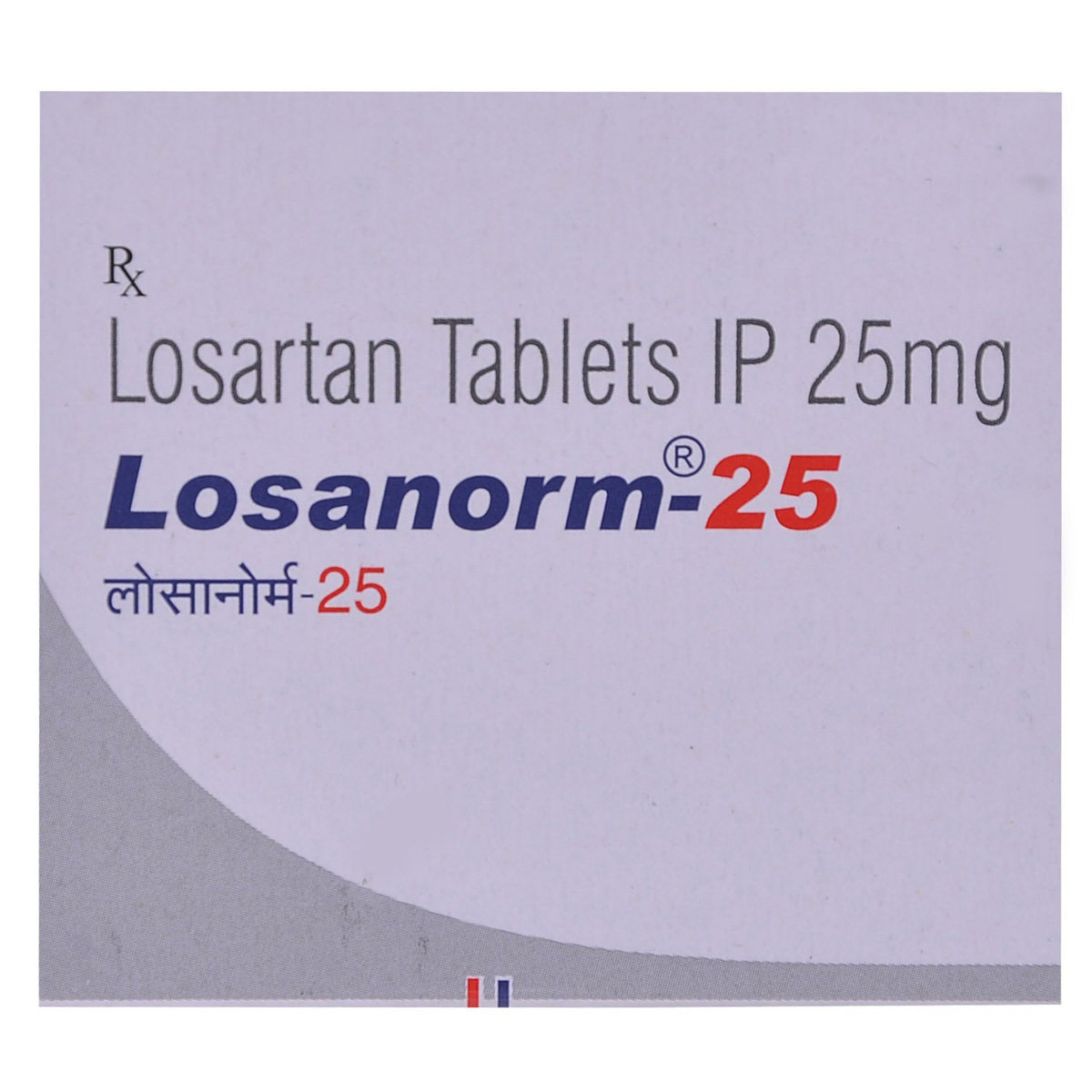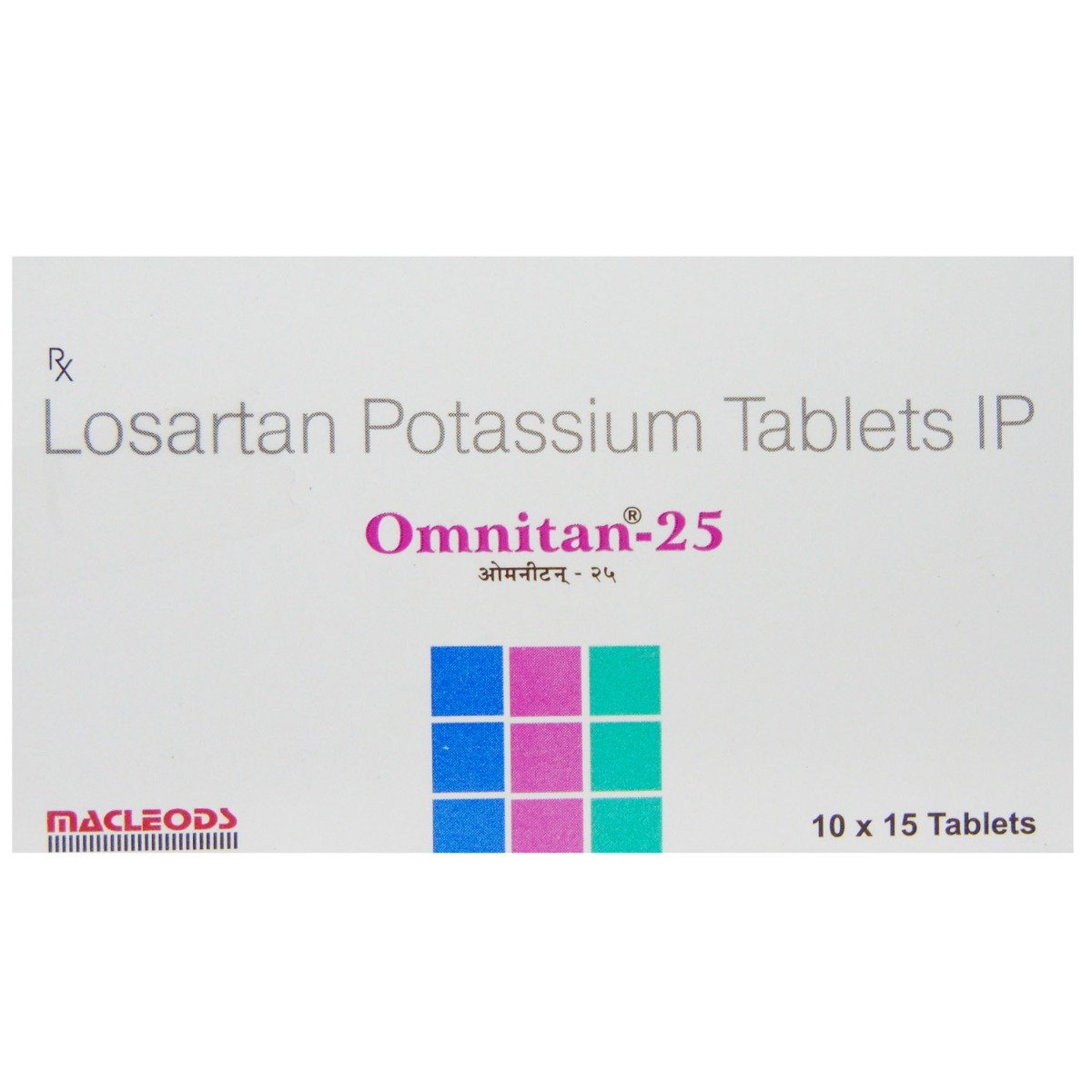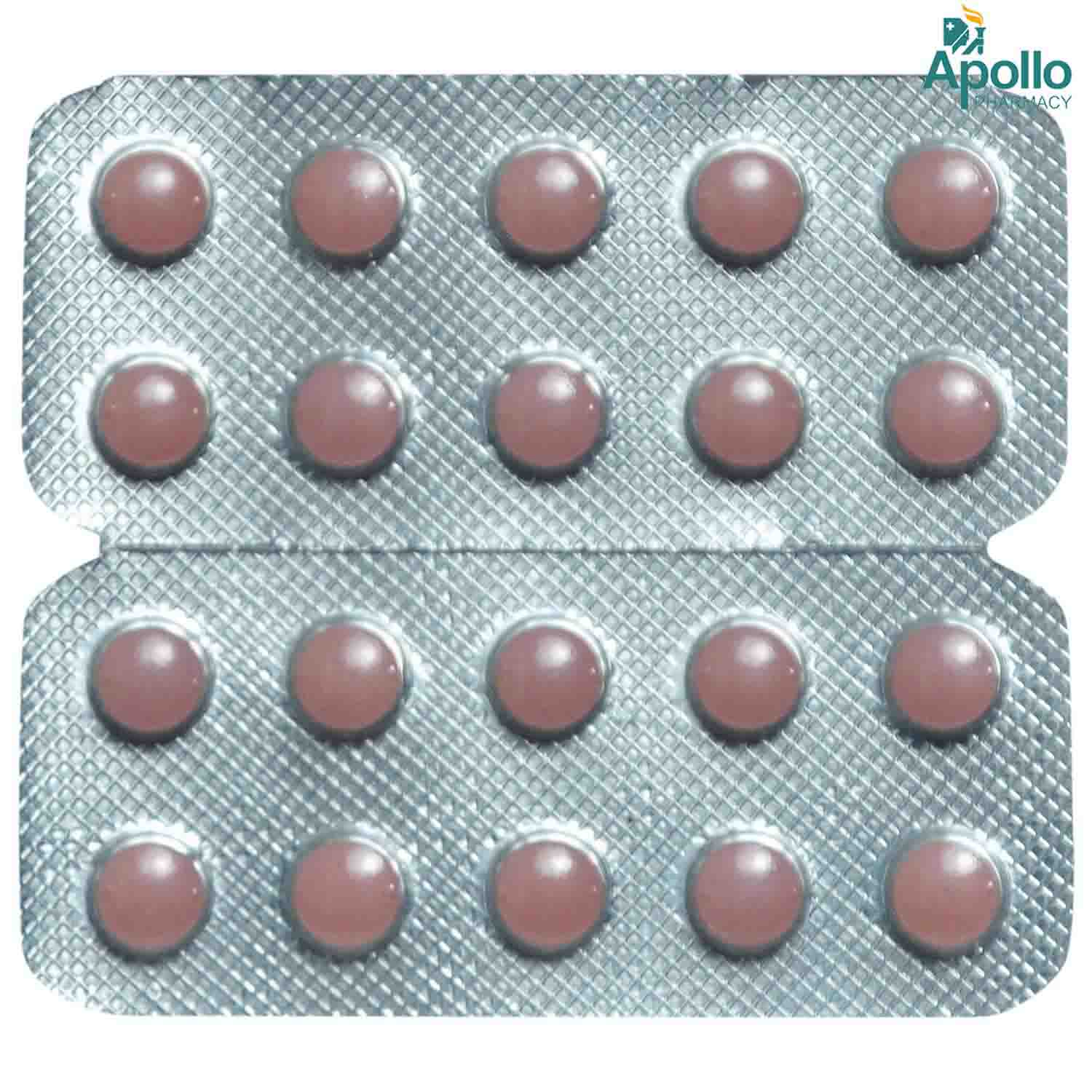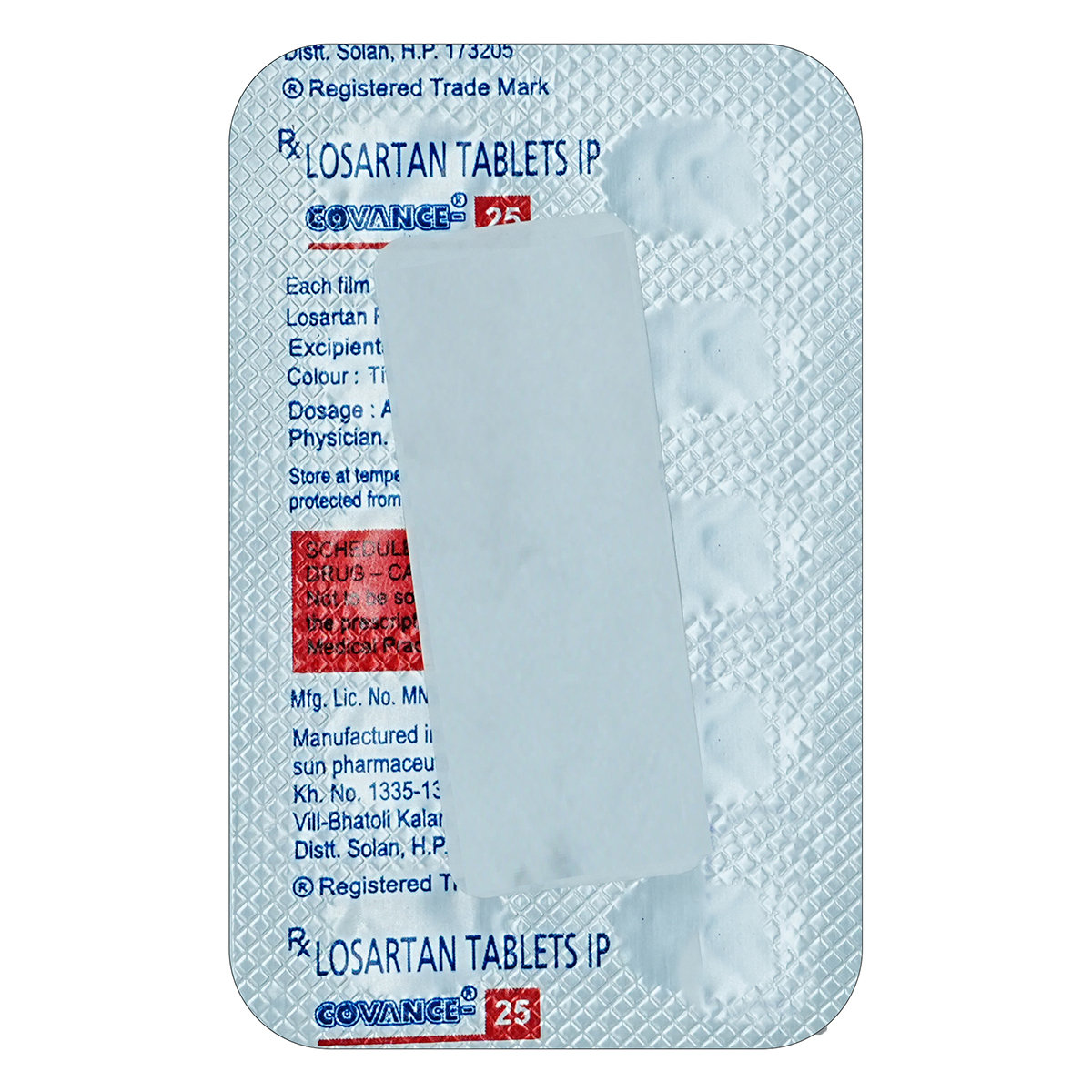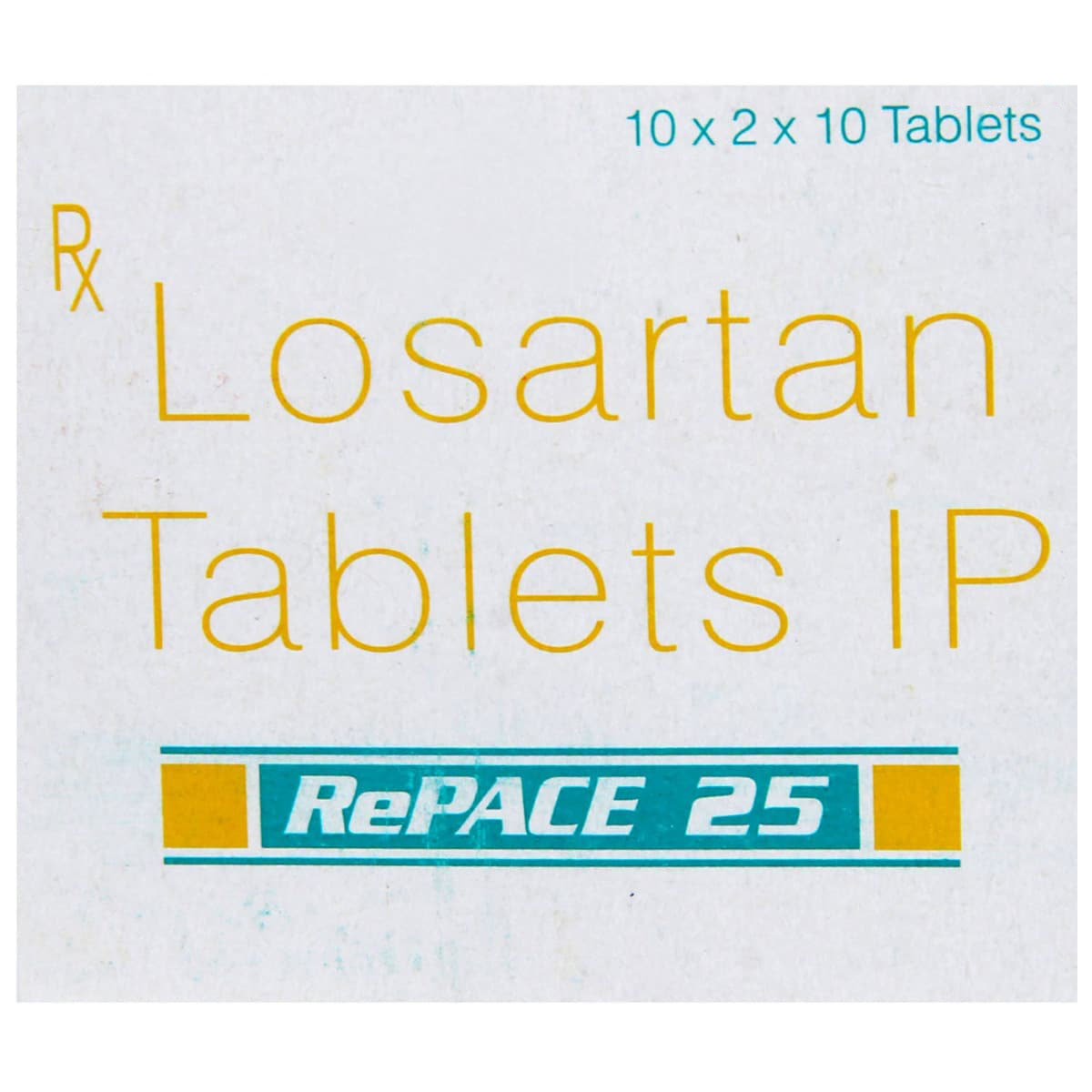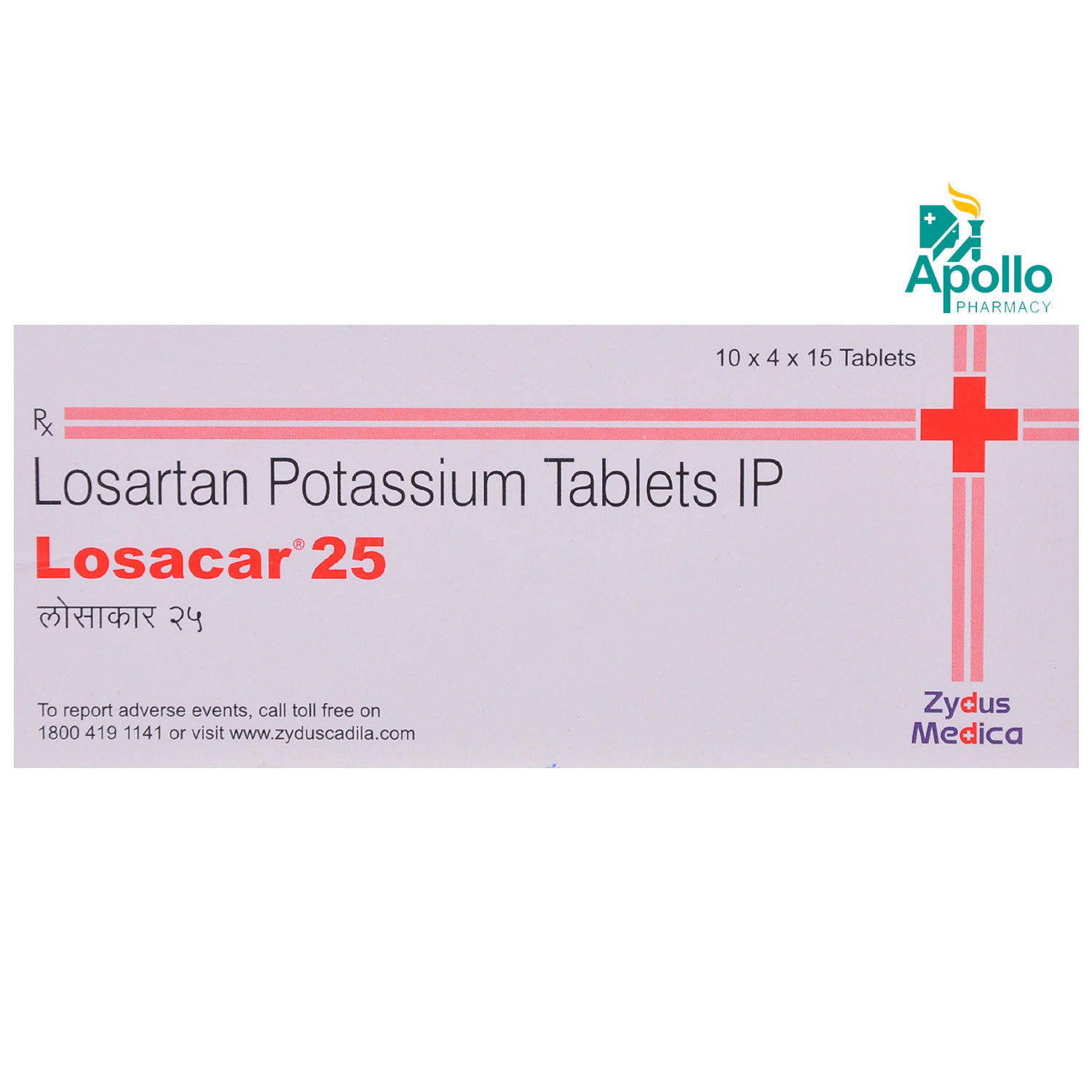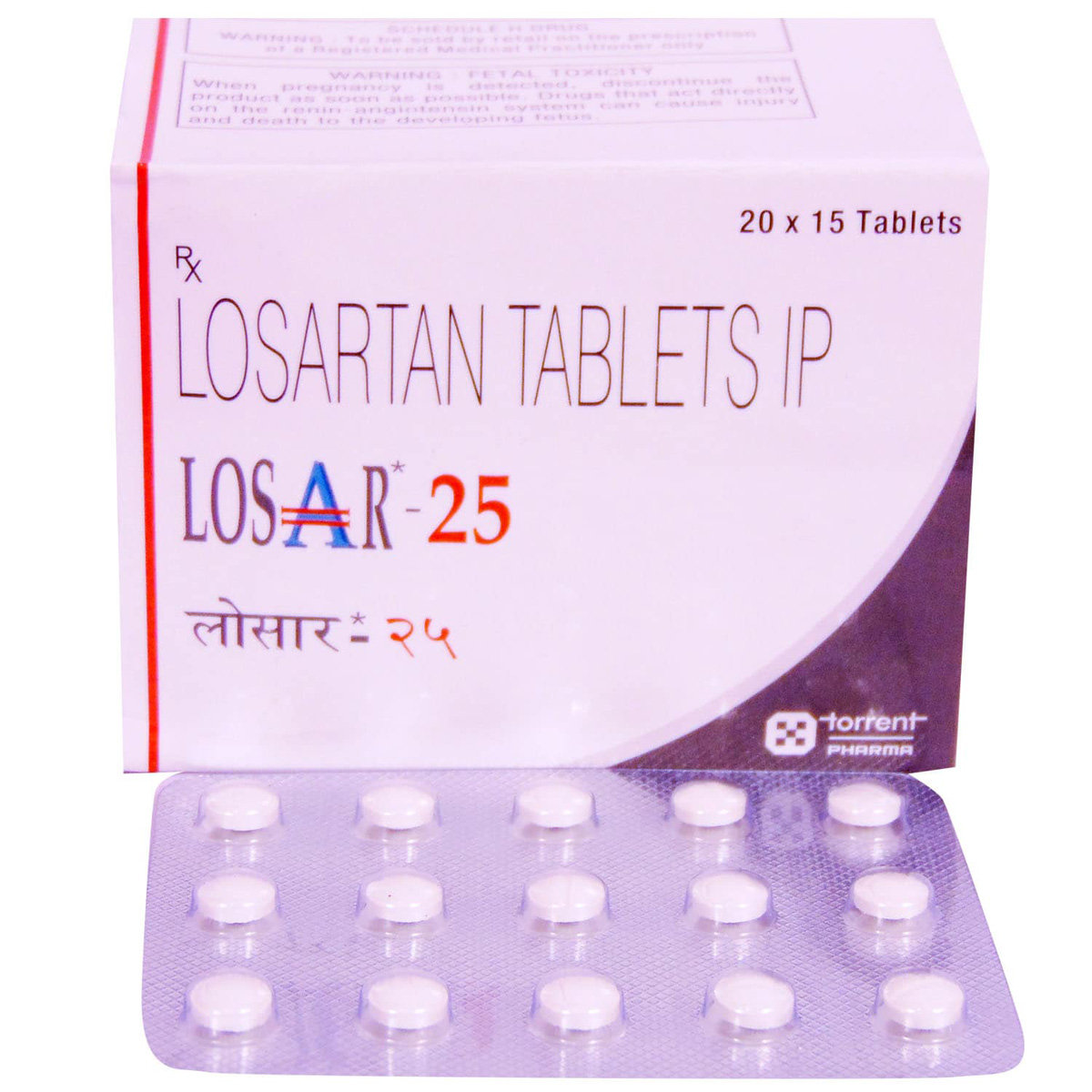Alsartan 25 mg Tablet 10's
MRP ₹38.5
(Inclusive of all Taxes)
₹5.8 Cashback (15%)
Provide Delivery Location
Online payment accepted
 Prescription drug
Prescription drugWhats That
Composition :
Manufacturer/Marketer :
Consume Type :
Expires on or after :
Return Policy :
About Alsartan 25 mg Tablet
Alsartan 25 mg Tablet belongs to a class of drugs known as angiotensin II receptor blockers that are used to treat high blood pressure (hypertension) and lower the risk of stroke in certain people with heart disease. Hypertension is a medical condition in which blood pressure is elevated persistently (<140/90) in the arteries. Heart failure is a chronic condition in which the heart is unable to pump blood as effectively as it should.
Alsartan 25 mg Tablet contains Losartan which works by blocking the action of a hormone called angiotensin II thereby preventing blood vessels from narrowing, in turn lowering the blood pressure and improving the overall blood flow. Besides this, it also protects your kidneys if you have both kidney disease and diabetes.
Take Alsartan 25 mg Tablet irrespective of food daily at the same time and swallow whole with a glass of water. Do not crush, chew or break it. Your doctor will advise you on how many doses you should take based on your medical condition. In some cases, you may experience dizziness, tiredness, low blood pressure, weakness, anaemia (lack of blood), hyperkalaemia (high potassium levels in the blood), change in kidney function, orthostatic hypotension (low blood pressure when standing up from lying or sitting position) or hypoglycaemia (low blood sugar). Most of these side effects of Alsartan 25 mg Tablet do not require medical attention and gradually resolve over time. However, if the side effects persist, please consult your doctor.
If you are known to be allergic to Alsartan 25 mg Tablet or any other medicines, please tell your doctor. It is advised to complete a full course of medication and not stop taking Alsartan 25 mg Tablet suddenly as it may cause recurring symptoms or worsen the condition. Alsartan 25 mg Tablet is not recommended for pregnant, breastfeeding women, and children below six years of age. Do not consume alcohol with Alsartan 25 mg Tablet as it may increase the risk of low blood pressure. Avoid potassium supplements with Alsartan 25 mg Tablet as they may lead to high potassium levels in the blood.
Uses of Alsartan 25 mg Tablet
Directions for Use
Key Benefits
Alsartan 25 mg Tablet is used to treat high blood pressure and prevent heart failure. Alsartan 25 mg Tablet is an angiotensin II receptor blocker that blocks the action of a hormone called angiotensin II in the body that causes narrowing of blood vessels leading to high blood pressure. Thereby, lowers high blood pressure by widening and relaxing blood vessels.
Storage
- Confusion is a major psychotic disorder that needs immediate medical attention.
- Acknowledge your experience and put effort to control confusion.
- Avoid smoking and alcohol intake as it can worsen the condition and increase your confusion.
- Practice meditation and yoga to avoid anxiety, which can be one of the leading causes.
- Talk to your dietician and consume food that can improve your mental health.
- A blocked nose can be relieved by drinking more water, which helps clear fluids.
- Use saline nasal spray available over the counter to relieve blockage or blow harder to remove the mucus.
- Use nasal strips that can be placed on the nose to widen nostrils and increase airflow.
- Keep a humidifier around to moisten air at home/workplace.
- Drink water or other clear fluids.
- To prevent worsening of pain, limit intake of tea, coffee, or alcohol.
- Include bland foods like rice, toast, crackers, and rice in your diet.
- Avoid lying down immediately after eating as it may cause indigestion or heartburn.
- Avoid acidic and spicy food as it may cause indigestion.
- Muscle cramps can be treated with regular exercise or yoga, which includes mild stretching, which helps strengthen the lower body.
- Warm baths and gentle massage of the affected parts can help relieve cramps.
- Avoid strenuous activity and take frequent breaks, as rest is critical.
- Intake of nutritious food can help strengthen body and mind. A trained nutritionist can help design a balanced diet for strengthening muscles.
- Speak to your doctor if the pain lasts an extended period. Medical help can be practical in finding a cure for cramps.
- Changes in kidney function need immediate medical attention.
- Always monitor your blood pressure and inform your healthcare team if there are any sudden changes.
- Take medicines as prescribed and eat a balanced diet suggested by your dietician for healthy kidney function.
- Physical activity and exercise must be included in your daily routine to have proper kidney functioning and to maintain a healthy weight.
- Get enough sleep to reduce the stress levels that have a direct impact on your kidney functioning.
Drug Warnings
If you have diabetes, kidney or liver problems, please inform your doctor before taking Alsartan 25 mg Tablet . Alsartan 25 mg Tablet is not recommended for pregnant women especially in second and third trimesters as it may cause serious harm to the unborn baby (fetus). Therefore, pregnant or breastfeeding women are advised to consult a doctor before taking Alsartan 25 mg Tablet . Do not consume alcohol with Alsartan 25 mg Tablet as it may increase the risk of low blood pressure. Avoid potassium supplements with Alsartan 25 mg Tablet as it may lead to high potassium levels in blood. Regular blood tests and blood pressure monitoring are recommended while taking Alsartan 25 mg Tablet .
Drug-Drug Interactions
Drug-Drug Interactions
Login/Sign Up
Coadministration of ramipril together with Alsartan 25 mg Tablet may increase the risk of side effects such as low blood pressure, kidney function impairment, and a condition called hyperkalemia (high blood potassium).
How to manage the interaction:
Taking Alsartan 25 mg Tablet with Ramipril together can result in an interaction, it can be taken if your doctor has advised it. However, if you notice any nausea, vomiting, weakness, confusion, tingling of the hands and feet, feelings of heaviness in the legs, or irregular heartbeat, you should contact a doctor immediately. Avoid taking a potassium-rich diet (tomatoes, raisins, figs, potatoes, lima beans, bananas, plantains, papayas, pears, cantaloupes, mangoes) while taking these medications. Do not stop using any medications without talking to a doctor.
Coadministration of Alsartan 25 mg Tablet with Benazepril can increase potassium levels which can lead to severe conditions like kidney failure, muscle paralysis, and irregular heart rhythm.
How to manage the interaction:
Taking Alsartan 25 mg Tablet with Benazepril together can result in an interaction, it can be taken if your doctor has advised it. However, if you notice any unusual bleeding or bruising, other signs of bleeding, dizziness, lightheadedness, red or black tarry stools, coughing up or vomiting blood, severe headache, and weakness, you should contact a doctor immediately. Do not stop using any medications without talking to a doctor.
Coadministration of Alsartan 25 mg Tablet with Perindopril can increase of kidney problems and irregular heart rhythm.
How to manage the interaction:
Taking Alsartan 25 mg Tablet with Perindopril together can result in an interaction, it can be taken if your doctor has advised it. However, if you notice any nausea, vomiting, weakness, confusion, tingling of the hands and feet, feelings of heaviness in the legs, or irregular heartbeat, you should contact a doctor immediately. Do not stop using any medications without talking to a doctor.
Co-administration of Alsartan 25 mg Tablet with Potassium chloride may increase potassium levels in the blood. High potassium levels can cause hyperkalemia (a high level of the electrolyte potassium in the blood), which can lead to kidney failure, muscular paralysis, and abnormal heart rhythm.
How to manage the interaction:
Taking Alsartan 25 mg Tablet with Potassium chloride together can result in an interaction, it can be taken if a doctor has advised it. However, consult the doctor if you experience nausea, vomiting, weakness, disorientation, tingling in your hands and feet, feelings of heaviness in your legs, a weak pulse, or a slow or irregular heartbeat. It is advised to reduce the intake of potassium-rich foods such as tomatoes, raisins, figs, potatoes, lima beans, bananas, plantains, papayas, pears, cantaloupes, mangoes, and potassium-containing salt substitutes. Do not discontinue any medications without a doctor's advice.
Using enalapril together with Alsartan 25 mg Tablet may increase the risk of side effects such as low blood pressure, kidney function impairment, and a condition called hyperkalemia (high blood potassium).
How to manage the interaction:
Although taking Enalapril with Alsartan 25 mg Tablet may result in an interaction, they can be taken together if your doctor prescribes it. However, contact a doctor immediately if you experience nausea, vomiting, weakness, tingling of the hands and feet, and feelings of heaviness in the legs. Do not discontinue any medication without consulting a doctor.
Coadministration of Alsartan 25 mg Tablet with Potassium citrate can increase potassium levels, which can lead to severe conditions like kidney failure, muscle paralysis, and irregular heart rhythm.
How to manage the interaction:
Taking Alsartan 25 mg Tablet with Potassium citrate together can result in an interaction, it can be taken if your doctor has advised it. However, consult the doctor if you experience nausea, vomiting, weakness, disorientation, tingling in your hands and feet, feelings of heaviness in your legs, a weak pulse, or a slow or irregular heartbeat. It is essential to maintain proper fluid intake while taking these medications. It is advised to reduce the intake of potassium-rich foods. Do not discontinue any medications without a doctor's advice.
Coadministration of Alsartan 25 mg Tablet with Tizanidine can show additive effects which can lower the blood pressure and increase the risk and severity of side effects.
How to manage the interaction:
Taking Alsartan 25 mg Tablet with Tizanidine together can result in an interaction, but it can be taken if your doctor has advised it. However, contact a doctor immediately if you notice any nausea, vomiting, weakness, confusion, tingling of the hands and feet, feelings of heaviness in the legs, or irregular heartbeat. While taking these medications, avoid taking a potassium-rich diet (tomatoes, raisins, figs, potatoes, lima beans, bananas, plantains, papayas, pears, cantaloupes, mangoes). Do not stop using any medications without talking to a doctor.
Coadministration of Alsartan 25 mg Tablet with Trimethoprim can increase potassium levels which can lead to severe conditions like kidney problems.
How to manage the interaction:
Taking Alsartan 25 mg Tablet with Trimethoprim together can result in an interaction, it can be taken if your doctor has advised it. However, if you notice any nausea, vomiting, weakness, confusion, tingling of the hands and feet, feelings of heaviness in the legs, or irregular heartbeat, you should contact a doctor immediately. Do not stop using any medications without talking to a doctor.
Coadministration of Alsartan 25 mg Tablet with Captopril can increase potassium levels which can lead to severe conditions like kidney failure, muscle paralysis, and irregular heart rhythm.
How to manage the interaction:
Taking Alsartan 25 mg Tablet with Captopril together can result in an interaction, it can be taken if your doctor has advised it. However, if you notice any nausea, vomiting, weakness, confusion, tingling of the hands and feet, feelings of heaviness in the legs, or irregular heartbeat, you should contact a doctor immediately. Avoid taking a potassium-rich diet (tomatoes, raisins, figs, potatoes, lima beans, bananas, plantains, papayas, pears, cantaloupes, mangoes) while taking these medications. Do not stop using any medications without talking to a doctor.
Coadministration of Alsartan 25 mg Tablet with Spironolactone can increase potassium levels in blood which can lead to severe conditions like kidney problems and irregular heart rhythm.
How to manage the interaction:
Taking Alsartan 25 mg Tablet with Spironolactone is not recommended as it can possibly result in an interaction, it can be taken if your doctor has advised it. However, consult the doctor if you experience nausea, vomiting, weakness, confusion, tingling in your hands and feet, feeling of heaviness in your legs, a weak pulse, or a slow or irregular heartbeat. It is important to maintain proper fluid intake while taking these medications. Do not stop taking any medication without doctor's advise.
Drug-Food Interactions
Drug-Food Interactions
Login/Sign Up
Lentils, Orange Juice, Oranges, Raisins, Potatoes, Salmon Dried, Spinach, Sweet Potatoes, Tomatoes, Coconut Water, Beans, Beetroot, Broccoli, Bananas, Apricots, Avocado, Yogurt
How to manage the interaction:
Taking Alsartan 25 mg Tablet with potassium-rich foods can increase the risk or severity of side effects like weakness, irregular heartbeat, confusion, tingling of the extremities, or feelings of heaviness in the legs. Do not stop using any medications without first talking to your doctor. Avoid taking potassium-rich foods (tomatoes, raisins, figs, potatoes, lima beans, bananas, plantains, papayas, pears, cantaloupes, mangoes) along with Alsartan 25 mg Tablet. If you experience any nausea, vomiting, weakness, confusion, tingling of the hands and feet, or irregular heartbeat, you should contact a doctor immediately. Do not stop using any medications without talking to a doctor.
Diet & Lifestyle Advise
- Maintain a low salt diet and minimize eating processed foods as they contain more sodium. Try to replace salt with spices or herbs to add flavour to the food.
- Do regular exercise such as cycling, walking, jogging, dancing or swimming for a minimum of 30 minutes per day.
- Chronic stress may also cause high blood pressure. Therefore, avoid stress triggers and make time for yourself to relax and do activities that you enjoy.
- Maintain a diet that is rich in fruits, vegetables, whole grains and low-fat dairy products.
- Avoid smoking and alcohol intake.
Side Effects of Alsartan 25 mg Tablet
- Dizziness
- Tiredness
- Low blood pressure
- Weakness
- Anaemia (lack of blood)
- Hyperkalaemia (high potassium levels in blood)
- Changes in kidney function
- Orthostatic hypotension (low blood pressure when standing up from lying or sitting position)
- Hypoglycaemia (low blood sugar)
Habit Forming
Therapeutic Class
All Substitutes & Brand Comparisons
RX
LTK 25MG TABLET
Unison Pharmaceuticals Pvt Ltd
₹15.5
(₹1.4 per unit)
59% CHEAPERRX
Zilos 25 Tablet 10's
FDC Ltd
₹24
(₹2.16 per unit)
37% CHEAPERRX
Losium 25 Tablet 30's
Cadila Healthcare Ltd
₹82.5
(₹2.48 per unit)
28% CHEAPER
Author Details
We provide you with authentic, trustworthy and relevant information
Drug-Diseases Interactions
Drug-Diseases Interactions
Login/Sign Up
FAQs
No, Alsartan 25 mg Tablet is not recommended for use during pregnancy especially in the second and third trimesters as it may harm the developing baby. Therefore, if you are pregnant or planning for pregnancy, please inform your doctor before taking Alsartan 25 mg Tablet .
You are not recommended to take more than the prescribed dose of Alsartan 25 mg Tablet as it may cause Alsartan 25 mg Tablet overdose resulting in symptoms such as low blood pressure, fast or slow heartbeat. However, if you experience any of these symptoms while taking Alsartan 25 mg Tablet , please consult a doctor immediately.
No, you are not recommended to take ibuprofen with Alsartan 25 mg Tablet as co-administration of these two medicines may reduce the effect of Alsartan 25 mg Tablet and increase the risk of impaired kidney function. However, if you experience loss of appetite, sudden weight loss or weight gain, weakness, muscle cramps, vomiting, nausea, decreased or increased urination, irregular heart rhythm and fluid retention, please consult a doctor immediately. If you are supposed to use these medicines together, you are advised to contact your doctor so that the dose may be adjusted to use safely.
No, you are not recommended to take potassium supplements with Alsartan 25 mg Tablet as it may increase the levels of potassium in blood (hyperkalaemia). However, please consult a doctor before taking other medicines with Alsartan 25 mg Tablet .
Alsartan 25 mg Tablet may be safe for diabetic patients if it is prescribed by a doctor. Alsartan 25 mg Tablet protects kidney and slows down the decrease of kidney function in hypertensive (high blood pressure) type 2 diabetic patients.
If you have any kidney problems, it is advised to inform your doctor before taking Alsartan 25 mg Tablet . Alsartan 25 mg Tablet may worsen kidneys function if there is any existing kidney problem. However, if you experience unexplained weight gain, swelling in feet, ankles or hands, please consult your doctor immediately.
Drug-Drug Interactions Checker List
- IBUPROFEN
- ASPIRIN
- LISINOPRIL
- ENALAPRIL
- RAMIPRIL
- BENAZEPRIL
- CAPTOPRIL
- FOSINOPRIL
- MOEXIPRIL
- PERINDOPRIL
- QUINAPRIL
- ALISKIREN
- AMILORIDE
- SPIRONOLACTONE
- TRIAMTERENE
- HEPARIN
- TIZANIDINE
- TRIMETHOPRIM
Special Advise
- Monitor your blood pressure regularly and if you notice any fluctuations, please consult a doctor.
- Low salt diet and regular exercise are recommended along with Alsartan 25 mg Tablet for effective results.
Disease/Condition Glossary
Hypertension (high blood pressure) is a medical condition in which the blood pressure is elevated persistently in the arteries. High blood pressure is mostly caused by obesity, diabetes, smoking, high salt intake, stress, lack of physical activity, or aging. Normal blood pressure lies between 90/60 mmHg and 120/80 mmHg. If the blood pressure is 140/90 mmHg or greater, it is considered high blood pressure. If it is left untreated, it may lead to heart disease and stroke. Heart failure is a chronic condition in which the heart is unable to pump blood as effectively as it should. Heart failure may occur due to certain conditions like high blood pressure, swelling or damage of heart muscle, faulty heart valves, or narrow arteries in the heart. Symptoms of heart failure include tiredness, shortness of breath, fast heartbeat, and swollen legs.

Have a query?
Alcohol
Safe if prescribed
You are recommended to avoid consumption of alcohol with Alsartan 25 mg Tablet as it may increase the risk of low blood pressure and cause adverse effects such as dizziness, fainting, light-headedness or headache.
Pregnancy
Consult your doctor
When Alsartan 25 mg Tablet is used in the pregnancy during the 2nd and 3rd trimesters it affects the renin-angiotensin system can cause injury and even death to the unborn baby. So when pregnancy is detected, Alsartan 25 mg Tablet should be discontinued as soon as possible.
Breast Feeding
Consult your doctor
Avoid breastfeeding while taking Alsartan 25 mg Tablet as it may be unsafe for the baby.
Driving
Safe if prescribed
Alsartan 25 mg Tablet may cause dizziness or drowsiness in some people. So, drive only if you are alert after taking Alsartan 25 mg Tablet .
Liver
Consult your doctor
Alsartan 25 mg Tablet should be given with caution, especially if you have a history of Liver diseases/conditions. The dose may be adjusted by your doctor as required.
Kidney
Consult your doctor
Alsartan 25 mg Tablet should be given with caution, especially if you have a history of Kidney diseases/conditions. The dose may be adjusted by your doctor as required.
Children
Safe if prescribed
It is not recommended for children below 6 years. However, for children above 6 years, give Alsartan 25 mg Tablet in doses as prescribed by a doctor.




